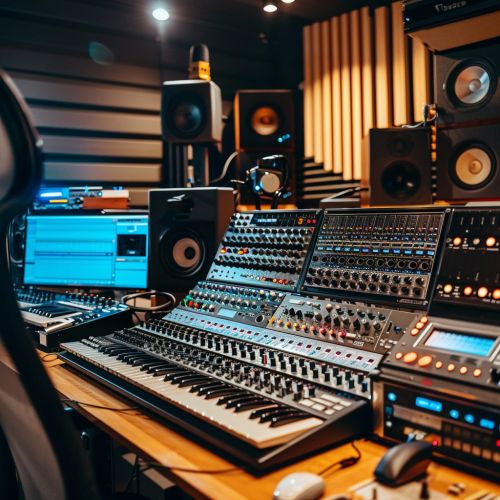21st-century music
Overview
The 21st century has been a period of significant change in the world of music, with the advent of new technologies, the rise of new genres, and the evolution of existing ones. The music of the 21st century is characterized by a wide variety of styles and influences, reflecting the diverse and interconnected world in which we live. This article will explore the key trends, genres, and developments that have shaped 21st-century music.
Technological advancements
One of the defining features of 21st-century music is the impact of technology. The rise of the internet and digital technologies has revolutionized the way music is created, distributed, and consumed.


The advent of music production software has democratized the process of creating music, allowing anyone with a computer to produce high-quality tracks. This has led to a proliferation of bedroom producers and independent artists, who can now reach a global audience without the need for a traditional record label.
The internet has also transformed the way we listen to music. Streaming services like Spotify and Apple Music have become the dominant form of music consumption, offering access to millions of songs at the click of a button. This has had a profound impact on the music industry, affecting everything from artist royalties to album release strategies.
Genres and styles
21st-century music encompasses a wide range of genres and styles, many of which have evolved or emerged in the past two decades.
Electronic music has seen significant growth and diversification in the 21st century, with sub-genres like EDM, dubstep, and future bass gaining mainstream popularity. The use of digital production techniques and electronic instruments has also permeated other genres, leading to hybrid styles like electropop and electronic dance music.
Hip hop has continued to evolve and expand in the 21st century, becoming one of the most dominant and influential genres worldwide. The emergence of sub-genres like trap and drill has pushed the boundaries of hip hop, while the rise of international scenes has diversified its sound and cultural impact.
Indie music, once a niche genre, has also gained mainstream recognition in the 21st century. The term 'indie' has broadened to encompass a wide range of styles and aesthetics, from indie rock and indie pop to indie folk and indie electronic.
Global influences
The 21st century has seen a greater integration of global influences in mainstream music. The rise of world music and the incorporation of non-Western sounds and instruments has led to a more diverse and multicultural musical landscape.
K-pop, or Korean pop music, has become a global phenomenon, with groups like BTS and Blackpink achieving international success. The genre's blend of catchy melodies, high-energy performances, and polished production has resonated with audiences around the world.
Latin music has also seen a resurgence in popularity, with genres like reggaeton and Latin trap gaining mainstream recognition. Artists like Bad Bunny and J Balvin have brought Latin music to a global audience, breaking language barriers and chart records in the process.
Conclusion
The music of the 21st century is a reflection of our diverse and interconnected world. It is a testament to the power of creativity and innovation, and a reminder of the universal language of music. As we continue to navigate this century, it will be fascinating to see how music continues to evolve and shape our cultural landscape.
